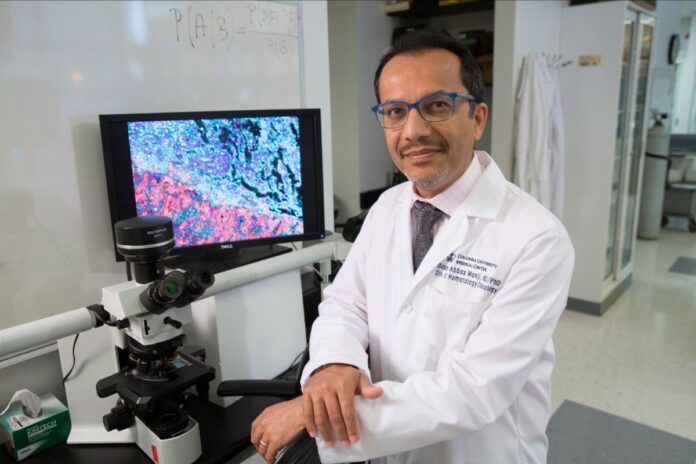Pancreatic cancer is one of the most difficult cancers to treat and an extremely challenging one to diagnose. It is rare that a patient will be diagnosed early as the symptoms tend to be vague and unfortunately are not usually identified until the disease has already advanced. With November marking the Pancreatic Cancer Awareness month, Gulam Manji, MD, PhD, a leading expert in pancreatic cancer, discusses the changing landscapes and exciting advances being made in the treatment of the disease.
About Dr Gulam Manji
Gulam Manji, M.D., PhD is an Assistant Professor of Medicine at Columbia University Medical Center. He received his M.D. degree from Ross University School of Medicine in 2009 and completed his residency in internal medicine at Albany Medical College. He is the director of medical oncology and translational research for the Pancreas Center at Columbia University Irving Medical Center and a member of the Tumour Biology and Microenvironment research program at the Herbert Irving Comprehensive Cancer Center, where he conducts translational research with the overall goal to developing new treatments for cancer.
Diagnosis of Pancreatic Cancer
There is no screening test for pancreas cancer, and many times the symptoms are very vague. The median age of diagnosis is in the mid-60s, and the initial symptoms are upper stomach or back pain, which are non-specific symptoms, and since it’s a rare disease, it doesn’t initially make you think of pancreatic cancer. These symptoms linger, and when the pain worsens with other alarming signs such as weight loss or jaundice, further tests identify the underlying pancreas cancer. Since stomach and back pain are common, many patients appropriately do not undergo CT scans to identify the cause initially. Unfortunately, by the time of diagnosis, for nearly 50% of patients, the cancer is already advanced and is inoperable.
Treatment Advances
With regards to treatments, new combination chemotherapies have truly improved survival for patients with this disease. A chemotherapy doublet and triplet are now standard treatments for patients. Folfirinox, the triplet therapy and Gemcitabine and Nab-Paclitaxel, the doublet therapy are both effective and have extended survival in this disease. Hence they are used extensively.
Dr Manji says that “There are now many combination clinical trials. Immunotherapy has changed the treatment landscape for many different types of cancer, but unfortunately in pancreas cancer, it hasn’t really proven effective for a majority of patients. But now understanding the tumour microenvironment, or the neighbourhood of the tumour, and identifying signals that do not allow immunotherapy to work and specifically targeting those signals in combination with chemotherapy and immunotherapy is starting to show some activity. These glimmers of hope are from early-stage clinical trials with a limited number of patients, so we have to be cautiously optimistic. But the number of patients whose tumours are shrinking in some early-stage studies makes me hopeful for what’s ahead.”
Clinical Trials for Pancreatic Cancer
There are many promising clinical trials currently underway internationally, including some at Columbia University. Dr Manji explains that “Based on prior results from other groups in genetically engineered mice which are designed to get pancreas cancer, we conducted a large study testing chemotherapy, immunotherapy, and testing a drug which is thought to allow immune cells to enter in the tumour. This combination in mice resulted in an extension of survival, and based on this study, an immunotherapy and chemotherapy combination clinical trial was just activated in patients with metastatic pancreas cancer.”
The Future with Pancreatic Cancer
While discussing what the future holds for Pancreatic Cancer, Dr Manji mentions that “Pancreas cancer is a challenge, but we continue to learn more about the disease every day – in the laboratory and from new clinical trials. The challenge of treating a rare disease is being countered by awareness in this disease which is resulting in patients seeking out clinical trials. Likewise, there is a push to tackle this disease head-on both in the laboratory and the clinic to better understand the fundamental mechanism which makes this disease so aggressive and to target these mechanisms for improved treatments. One such breakthrough changed how we treat pancreas cancer in patients who contain a mutation in BRCA1 or BRCA2, and I am hopeful that many such discoveries will result in personalized therapies which will change outcomes.”
This article is extracted from a detailed interview with Dr Gulam Manji by Melanie A. Farmer for the Columbia University Herbert Irving Comprehensive Cancer Center. To read the full interview, please click here














